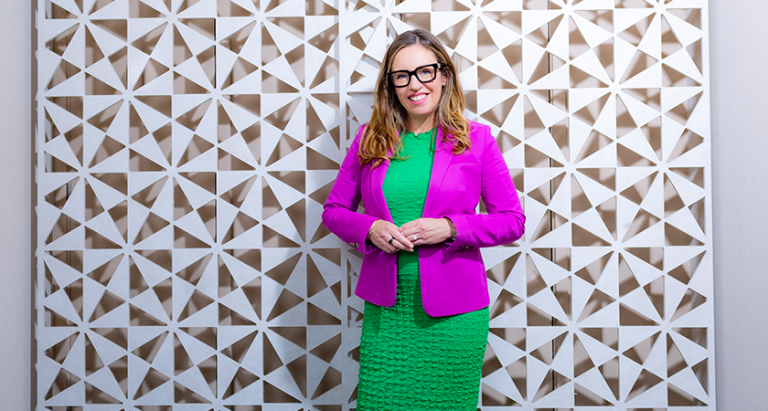UNIVERSITY REPRESENTS THE FIRST GREAT WORLD EXPERIENCE, SO THE RESTRICTIONS THAT THE PANDEMIC IMPOSED ON THE STUDENT COHORT CAUGHT IN IT, LOOKED PARTICULARLY CRUEL. IT SHOWED HOW THIS CRITICAL LIFE STAGE HAS TO BE FULLY LIVED – THROUGH FREEDOM, BELONGING, GUIDANCE AND SUPPORT – AND THIS IS THE AMBITION AND VALUES THAT HAVE DRIVEN YUGO TO BE ONE OF THE MOST DYNAMIC BRANDS IN STUDENT ACCOMMODATION WORLDWIDE.
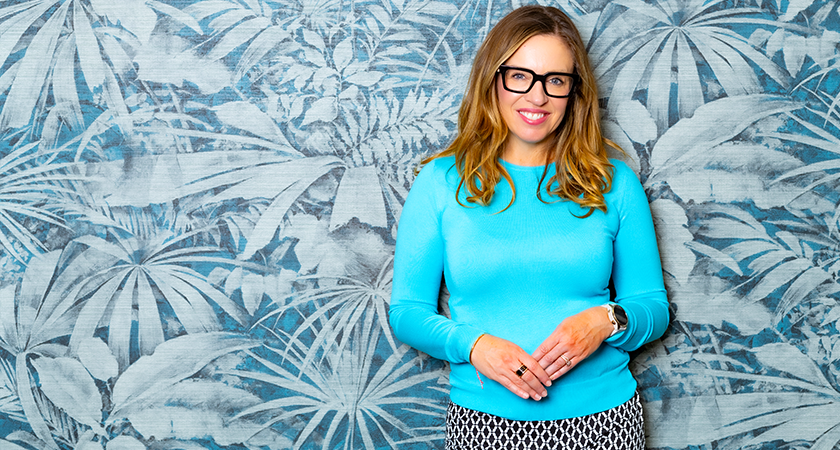
MICHELLE, TAKE US BACK TO YOUR EARLY LIFE AND HOW YOU FOUND THE PATH TO A CAREER IN HR?
My story begins in Sydney, Australia, where I started working straight after leaving school as a restaurant manager at KFC. I was thinking back while preparing for this interview and I’m truly amazed that, even at that tender age, I had such an acute interest in people and a natural affinity with my work colleagues – but back then I had no idea what HR was. When I look back at my younger self, what stands out above all else is that I grabbed every opportunity for training, absorbed information like a sponge and still do. Unsurprisingly, one of my first jobs ended up being in training, where I worked as a training manager covering 56 restaurants in KFC. Ultimately, through this, I discovered the wonderful world of HR and two unexpected passions combined more by luck than by design. Reflecting on my early experiences as a trainer, I guess it was similar to why teaching is so vocational. It’s so fulfilling to witness that critical ‘lightbulb moment’ with the people you are training, when everything falls into place and they realise how their newly-acquired skills enhance their capabilities and understanding. Receiving feedback from individuals about the positive impact they’re making – and how they’re enjoying a significantly enriched workplace experience – is so rewarding and far exceeds financial remuneration. It also occurs to me now that despite being at such a young age, I was training managers and leaders that were older and far more experienced. I believe I must have had a level of maturity and confidence beyond my years.
I remember the moment when it dawned on me that to progress my career, I needed to pursue higher education. At that point, I enrolled as a mature-age student in Sydney to study strategic human resources. Meanwhile, I kept my job – so that I could keep a roof over my head – and studied at night. I had the full support and backing of some great leaders in the business, who really encouraged me, particularly as I was trying to juggle work and studies. I must say that, in addition to gaining a qualification, it was a truly enriching experience. I interacted with people from all over the world, learned about various cultures and experienced a wide variety of businesses and industries during my studies. Undoubtedly, going to university as a mature student was a major turning point in my life and I try to inspire others facing a similar situation to take that step. I truly loved every moment and seized every opportunity to learn and expand my horizons, by connecting with a really diverse group of people from various backgrounds, including finance, public service, transport and retail. Plus, I learned from some exceptional lecturers who challenged conventional thinking and encouraged us to avoid vanilla ideas and solutions. On one occasion, a lecturer challenged us to carry out a management skills assessment – not on others, but on ourselves – which was so revealing and thought-provoking. Another lecturer introduced us to Socrates and Plato – subjects that you simply would not be exposed to in everyday life. This experience took me on a huge journey of self-discovery and it made me think about things in a very different way. I learned the importance of self-awareness and living by one’s ethos and morals and I also realised the significance of prioritising self-care. The more you invest in yourself in that manner, the better equipped you become to face life’s challenge.
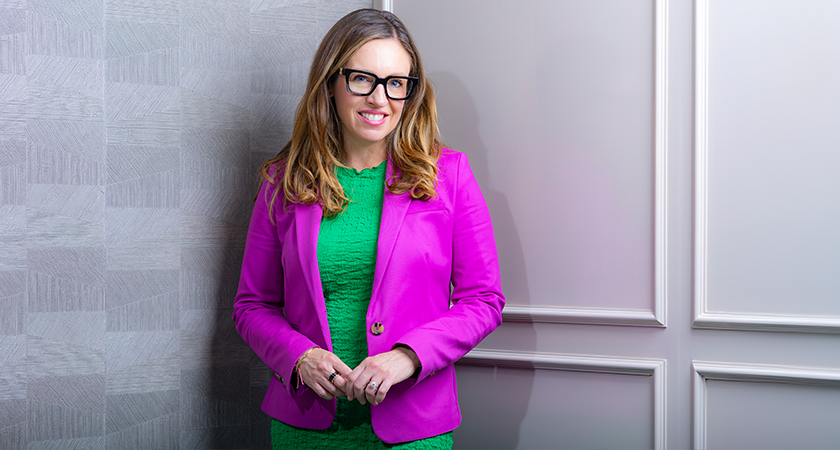
IT SOUNDS LIKE A TRULY LIFE-CHANGING EXPERIENCE AND IN THE HEART OF AN INCREDIBLE CITY. TELL US ABOUT THE NEXT PART OF YOUR JOURNEY.
I remember that time very fondly. Having the opportunity to meet people from diverse cultural backgrounds and all walks of life was incredibly enriching. It not only allowed me to learn from others, but also enhanced my self-development, enabling me to apply those lessons in the workplace. After I graduated, I thought it was time to explore the world and see what new opportunities were out there. I departed from Sydney airport for Berlin and shortly after, I relocated to Dubai. There I worked for a large retail organisation, specialising in logistics and supply chain and I was the Human Resources Lead in the aviation and air freight logistics department, a 24/7 environment that thrived on great camaraderie. It was an HR role primarily focused on compliance with policies and procedures, as opposed to strategy and building trust was crucial, as was ensuring the right expertise and skillsets were in the appropriate places. It was an environment that demanded situational and self[1]awareness and people relied on you to be an expert in your field. Having strong communication skills was essential, as was absolute clarity in defining roles and responsibilities. This was a really insightful experience that showed me the importance of discipline and always delivering to customers. Being under constant logistical pressure demonstrated that the way each department interacts with one another is of critical importance.
TELL US ABOUT YOUR MOVE TO YUGO AND EXPLAIN WHAT THE ORGANISATION IS AND DOES.
Yugo is a unique offering and something I hadn’t encountered before in student accommodation. In Australia, university students in towns and cities typically either live at home or rent shared properties from private landlords. When the opportunity arose at Yugo, I was immediately struck by what a uniquely compelling business and operating model it has and a vibrancy that I hadn’t come across before. Yugo is incredibly student-focused and supportive, with 70 percent of our employees aged under 35 and so there is real synergy, connectivity and a desire to make a difference. When I met with the Founder, Nick Porter, he had a real passion and a strong vision for what he wanted for the business. To give some context, Yugo is a global student housing provider, currently operating in nine different countries. We have over 110 spaces across the world and we employ a thousand people. Students come to us and stay with us for part of, or all their studies and our modus operandi is to deliver a student experience where people can make a transition from university into working life. To ensure that we are on target, we’ve carried out an unprecedented amount of research into what students really want and need, as opposed to the usual model of just treating them as tenants. The Yugo brand is based on research from every single market we operate in. In the research, students expressed concerns about the environment, their mental health and whether they possessed the necessary skills to transition into a career. Perhaps unsurprisingly, students feel the pressure of studying and gaining good grades, combined with not having the experience they might need to secure a role in the highly competitive job market.

We developed three pillars for the brand – YugoEco, YuPro and YuGrow – and these are designed to underpin everything we do for the students. We also have a Live Your Best Life programme, which has been a great success and our team delivers activities in each of the communities that focus on these pillars. To give you an idea of how our pillars operate, let’s take YugoEco: Here, we’re not just talking recycling, we’re living and breathing it and supporting our students to really gain an understanding and put it into practice. This includes organising clothes swap shops, beach clean ups, sustainable cooking and much more. We’re also working with like-minded businesses such as the Carbon Literacy Project to promote education and awareness of sustainable living. Next up is YuPro, this is about providing students with work experience in various ways and preparing them for the professional world. As part of this pillar, Yugo offers training sessions in CV writing, career advice and real-life experiences. Many of today’s students are passionate about creating content and so we have created a group of social media student ambassadors or ‘Yugonauts’, who provide authentic student living content. We also offer activities which help with professional development, such as LinkedIn workshops and interview skills. When we launched Yugo, we made a commitment to have 25 percent of our workforce made up of students and we’re living up to this promise, as this currently stands at 27 percent. When students are living with us, they have the opportunity to work with us too and, if they join our workforce, they have exposure to areas of the business, from marketing and services to event management. The experience and knowledge they pick up in our vibrant work environment can really help set them up for the world of work after graduation. Our third pillar is YuGrow, this was created to alleviate social anxiety and loneliness amongst residents, enhancing personal development and encouraging students to socially shine, through events, scholarships, student podcasts, diversity events and global networking opportunities. This is so much more than the usual student accommodation and the feedback from our students has been really positive, as we play a pivotal role in their lives.
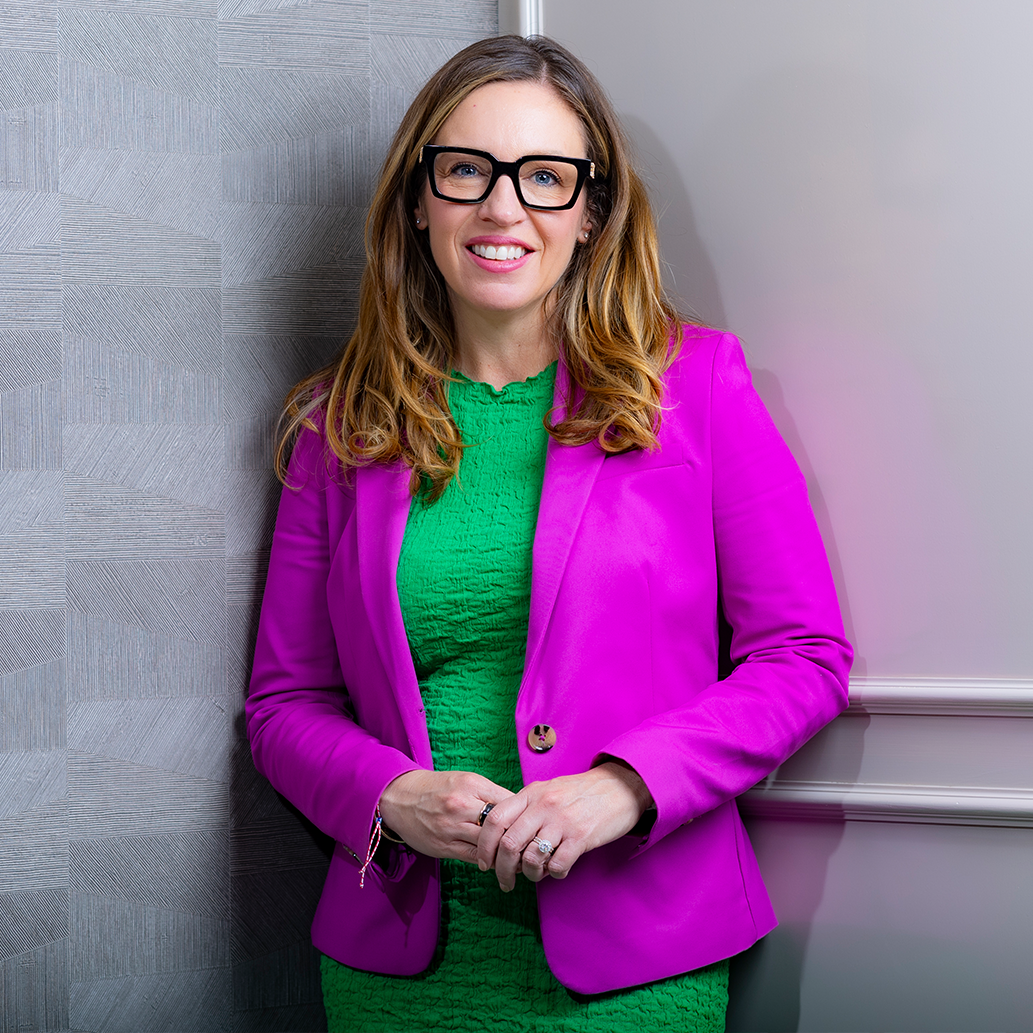
ACROSS THE SPACES YOU MANAGE, HOW DO YOU ENSURE STANDARDS AND PARITY. Predominantly, in our spaces,our workforce is operations-based with the primary focus on service delivery to our students and our residence managers have a broad spectrum of business skills to deliver to our investors and clients. From a support function perspective, our staff is focused on making sure that we enable our operations teams to deliver on our promises and maintain our key pillars. As we are a global organisation, we want our employees to have a say in the direction of the business and we’re very keen on having focus groups. This is where people from all over our business can join and give feedback from an engagement perspective, ESG angles and also from a diversity, equity and inclusion stance. This helps to engage and align both our staff and our students and brings synergy, which I think is a really neat proposition.
HOW IS THE BUSINESS ITSELF DEVELOPING AND HOW DO YOU MAINTAIN AND MONITOR WHAT SEEMS A PRETTY UNIQUE MODUS OPERANDI, CULTURE AND VALUES?
I always go back to our founder, Nick Porter. His vision and passion are the same as they were then. His ethos is that the world moves on, but the age of our customers always stays the same. As a member of the Yugo leadership team, I find that really easy to buy into, as it’s a basic but important element of human life that is about making it an experience that will be both rewarding and remembered fondly. Now, we are focused on scalable global growth, and the entire leadership team shares that business objective. We’re all determined to make it happen.

IT SOUNDS SYNERGISTIC, BUT QUITE UNUSUAL AND SO WHERE DO YOU SEE THE CHALLENGES AND OPPORTUNITIES IN DEVELOPING THE BUSINESS?
The challenges lay within the nitty-gritty realities of going into new markets with a clear understanding of labour laws and regulations, along with a pragmatic and agile mindset in terms of local customs and cultural perspectives. We learn more as we go and make sure that our managers go through that cultural learning. Also, from colleague to colleague, it’s that understanding and support that means people feel safe and confident in their role, regardless of department or level of responsibility. From a cultural aspect and staying true to our business, it’s about making sure that the people understand what our values are and what our service delivery style is. Importantly too, we are very diverse and we will continue to be. We have an even gender split and 54 percent of females in our organisation are in leadership roles. Anything from assistant managers and above to senior leaders, we have very comparable female representation, plus we have over 65 different nationalities, meaning that the workforce is truly representative of our student base. It works – as well as absolutely being the right thing to do – and our key determination is to continue to grow diversely and to always stay true to that. To keep that DEI vision consistent, it’s about training, brand standards and the values that underpin everything that we do. We went through a big skills programme to make sure that we had the right training and that it was offered to everyone in our business. It wasn’t role-specific, we went across the world carrying out multiple sessions, so that people really understood who they worked for. COVID was really difficult in our organisation – as it was for so many – but it made us even more adaptable and we tried our best to keep it as normal as possible.
WHAT ARE YOU MINDFUL OF AS THE BUSINESS CONTINUES TO SCALE AT PACE?
That is a big question! I’m always wary of tipping points – you don’t want to grow too fast – and so it’s all about balance. We’re constantly looking at ways in which technology can drive efficiencies in the business and that includes using AI to automate the HR system, so that we can have a much more standardised practice across the globe. In terms of recruitment and onboarding, for example, it’s important to be aligned and keep pace with business growth, anticipating where that growth will be and what skills are needed. This requires planning, while always keeping the developing teams focused, informed, supported and stabilised. The early stages for each new team are the most dynamic, but as we improve as a fully integrated business with increasing maturity, it is also about making sure our leaders operate in an optimised, efficient and lean manner while utilising technology to help drive some of those efficiencies. Indeed, AI is cropping up all around our business, for example in the leasing operation. There is constant pressure to keep up with advances in tech, to make sure that our staff are using the latest tools, rather than being embroiled in administration and spreadsheets.
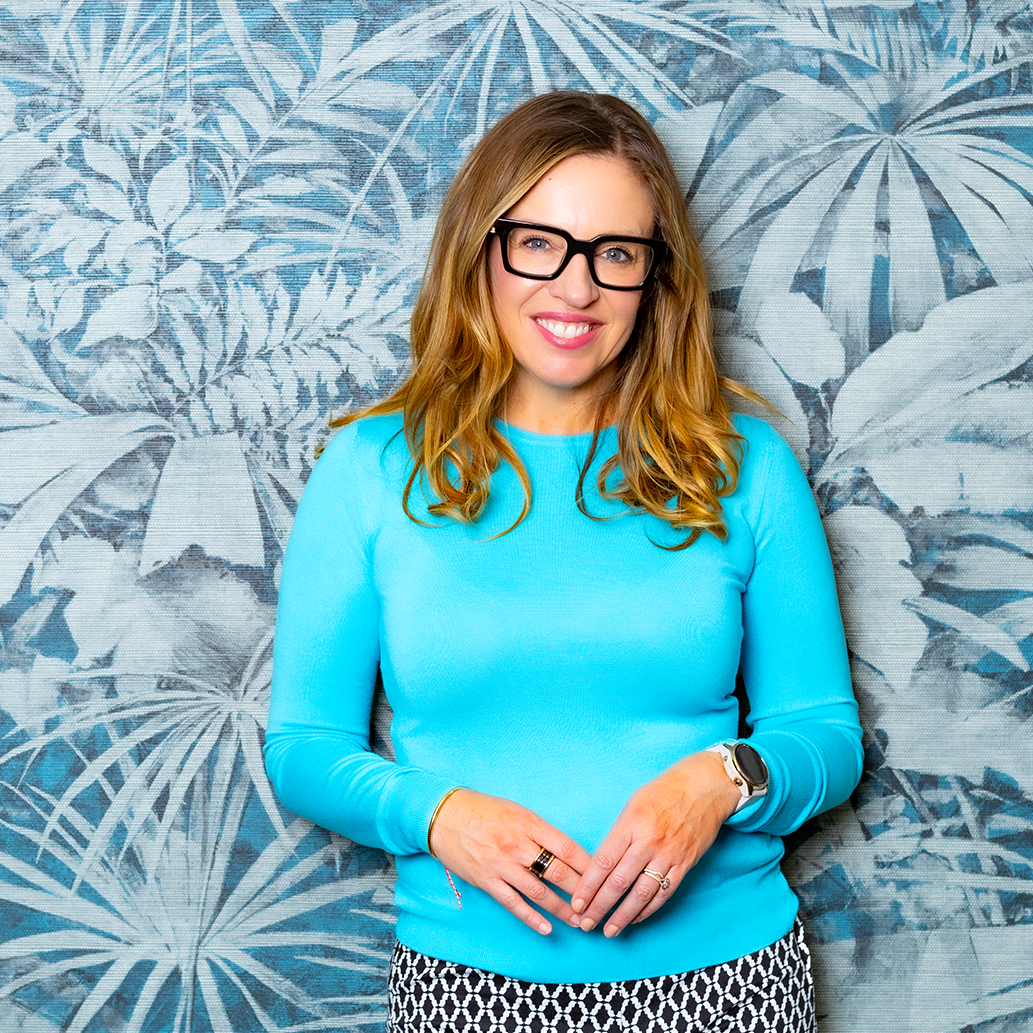
AS A GLOBAL, MULTI-SITE – AND IMPORTANTLY PEOPLE-CENTRIC BUSINESS – THERE MUST BE MANY AREAS WHERE BEING ABLE TO PROVIDE THE EXPECTED LEVEL OF REMOTE AND HYBRID WORKING IS PROBLEMATIC.
Post-pandemic, everything has evolved incredibly fast and the challenge is that we are having to interpret what that will mean operationally. Like all businesses, we still need people with the right skills in the right spaces and in a customer[1]facing business, this means they can’t always work remotely and so we’ve had to consider what that looks like. Remote work is something that will not go away and, as we are seeing now, when companies try to bring people back into the office through a conventional model, this is invariably met with a lot of rejection. From a workplace perspective, we still need to consider what remote work and flexibility means for a business like ours. We’re trialling different ideas and considering each job role to assess the level of flex and whether some roles could become part-time. We may not be able to be fully hybrid, but we are committed to finding a balance that works. Again, incoming technology integration may hold some of the answers, through greater efficiency and freeing up resources from repetition. There absolutely needs to be a different mindset and approach to resourcing, which will undoubtedly require up-skilling and reskilling. We all need to be cognisant of the fact that how we operate will inevitably change. That means that continuous learning is critical – it’s not just about training – it’s about personal learning experiences as people progress in their career path. We have to listen closely to people’s expectations of work and careers, as they are changing. Post-COVID, we also have a much more acute understanding of the importance of wellness, physical, financial and mental health priorities. We’re trialling several programmes and are open to different approaches and platforms. Some of the activities that we have held from a wellness perspective have garnered less than 20 percent participation and others have achieved 50 percent plus participation and so again, it’s about understanding what works for people and being flexible in our approach to give service offerings where people can join at any time of the day or night. We are trying out a much more individualised approach to wellness and, from an engagement perspective, that is about having easy access for all to join different focus groups, or to be mentored, anywhere in the world. As a global business across different time zones, we try and hold workshops at different times and support and encourage everyone to join in. In such fast-moving times, it’s about throwing the rule book out and never thinking that what you have delivered is a fait accompli. There will inevitably be adaptations to make along the way – again, that’s where feedback and focus groups are so key in decision[1]making – to move the business forward in ways that are relevant to the teams, rather than a top-down approach.
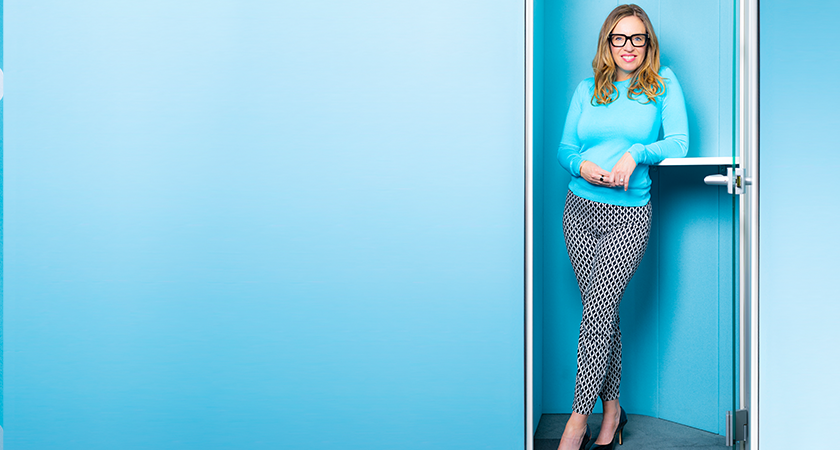
WE TALK ABOUT HYBRID WORKING AS SOME KIND OF PANACEA TO WORK/LIFE BALANCE, BUT IT SEEMS THAT FOR EVERY POSITIVE THERE’S A NEGATIVE.
Will it ever be perfect? No, I don’t think we will ever achieve that! But I think if we keep evolving, improving and being mindful of people as individuals and their circumstances, then we will be moving in the right direction. It’s also the case that an increasing number of people will expect hybrid and remote working as standard and they will vote with their feet if they believe their employer is not adapting. It is down to leadership, as always, to role model and it has to do with legacy issues and how we use technology to break those traditional moulds. It’s also about inspiring people to have new and innovative ways of working, to be creative, to take ownership, come up with ideas and have the right conversations. The days of command-and-control and the nine-to[1]five are history. One of the unique things about Yugo is that it represents a student movement, as each year, a new crop of young people with fresh ideas come through our doors, serving as a powerful driver of innovation.
HOW DO YOU THINK HR NEEDS TO TRANSITION NOW?
What must the profession represent going forward? It is and always has been about being commercially astute strategic partners, not the personnel administration and hygiene issues. HR really has moved forward and I think the sector has shown great courage and creative leadership during the pandemic. Now we must grasp the potential opportunities in AI and technology in general. It’s about good data and analytics, anticipating the needs of the people and the business, as opposed to reacting. Where I see the coaching for my team going is a greater focus on personalised learning, plus, having the mindset for true partnership and succession planning. We need to make sure that teams have the bench strength, are constantly evolving and have a good understanding of what technology can achieve.
MILLENNIALS ARE NOW THE LEADERS, WHO IN TURN MUST LISTEN TO THE NEXT GENERATIONS.
One of the reasons we have a successful intern and post-grad programme is down to mutual benefit, whereby the older generation can learn from younger peers. Young people’s mindsets and understanding cannot be discounted – they’re globally minded, more aware of the importance of DEI and of course, they are digitally switched on. It is interesting to watch Gen Z and Gen Alpha and how they interact with others and it has led to greater transparency and a flattening of the hierarchical model, as they demand to have their voices heard. They want to work for organisations that share their ethos and values. Contrary to belief, we’re seeing that they are more ambitious and so it’s important that reward and recognition programmes are aligned to their expectations – as well as their values – and provides transparency in their career path.
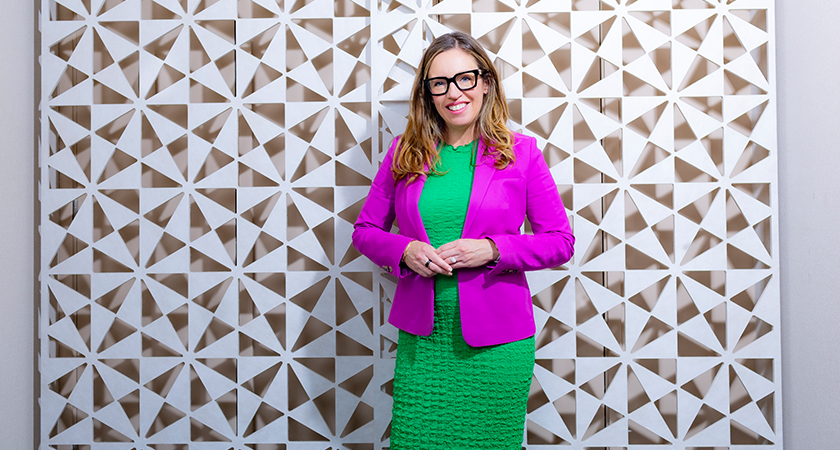
DIVERSITY AND INCLUSION SEEMED TO BE MAKING STEADY PROGRESS. BUT JUST RECENTLY, WE SEEM TO BE EXPERIENCING A REVERSAL OF TOLERANCE TOWARDS PROTECTED GROUPS AND THAT’S A REAL CONCERN.
From a diversity and inclusion perspective, we have had several resource groups and the one that was outstandingly successful was the LGBTQ+ group. I see our student base and the staff coming through as very supportive, as well as representative. It can sometimes seem that society is going backwards – and that’s a consequence of what’s going on both politically and in the economy – and so businesses need to be mindful of what is happening across their workforce. Again, leadership is key here, as is having ambassadors and advocates – not just from an LGBTQ+ group – but for everyone to have a say in how the business operates. That must include how policies are worded and how interviews are conducted, to bringing awareness throughout all our teams. I genuinely believe that consistent improvement across the board can only happen with diversity and inclusion and that means staying consistent and trying even harder to make progress.
WHAT ROLE SHOULD BUSINESSES BE PLAYING TO MOVE THE DIAL?
I believe that leaders of organisations should champion diversity and demonstrate the competitive advantages that it yields. We must be firm and clear about diversity and inclusion, not only to attract and retain talent in the future, but to show that it is a fundamental differentiator. Businesses that maintain the legacy of siloed and groupthink will increasingly fall behind. Although we’re going through a bit of a dark phase in society as a whole, I think we can come out the other side and the companies that encourage their employees to be a part of a DEI culture and make it a top priority, I believe will be the top performers. It’s not enough to keep saying “lessons will be learned”, now is an opportunity to make big changes and I think collectively, across the corporate world, there is a lot more we all need to be doing. With the climate the way that it is, it is a discussion and a topic that needs to be debated and kept in people’s consciences. This touches every aspect of business operations, from cultural providence to talent attraction and retention and financial performance.
DEI will undoubtedly be one of the key drivers of what makes a business relevant and competitive. As leaders, we have a commitment to keep driving those conversations. What is very hard for us as a global business, whose customers are young students, is the reality that some countries don’t share the same values and have aspects within cultures that are difficult to deal with. But turning your back is not the answer and will change nothing. It’s important to have a voice and stand together and we owe it to the generations coming through to keep going. But I would say that this is a challenge that we face as we grow globally and it requires pragmatism, respect and courage. We’re developing change enablers that will allow us to go into different markets and this will help us to achieve that growth trajectory, whilst remaining consistent with our culture.
WHAT DO YOU HOPE TO BRING TO YUGO THROUGH YOUR HR PLANS IN THE FUTURE.
I would say continuous and personalised learning is my number one objective, as I believe this is one of the key factors that will retain and attract talent. If they see constant development and growth – whether that be re- or upskilling and moving not just up, but sideways – they will stay with us longer and be able to take opportunities as we grow. Nothing makes me prouder than seeing people develop and progress well within our organisation. From a technology point of view, for me, it is looking at ways in which we can drive efficiencies, particularly for our operation staff, so that they can focus on delivering the Live Your Best Life programme. The final piece is, not only delivering to the students, but everyone in our organisation through our pillars. Giving life skills and opportunities to the students really makes us stand out in the student accommodation market and I think that is something to be proud of. It’s an exciting time for us and I’m thrilled to be part of a dynamic business that genuinely puts values and ethos ahead of all else, in a way that drives the business forward.
FOR FURTHER INFO YUGO.COM
